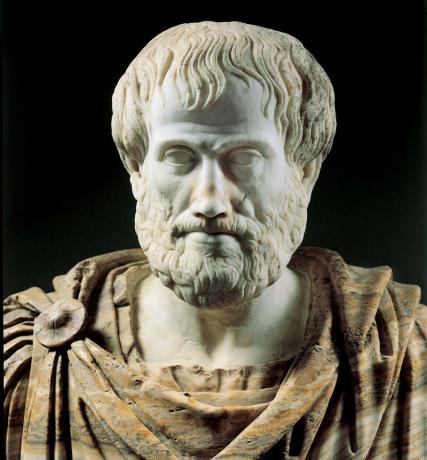The 8 branches of Philosophy (and their main thinkers)
Philosophy is one of the most difficult fields of knowledge to define. This means that, throughout history, many thinkers have set themselves the task of putting words to this abstract concept.
Maybe less difficult is delimit the different branches of philosophy to specify more about what each one is about, to have a better global vision of both this discipline and the philosophers who are dedicated to it.
- Related article: "How are Psychology and Philosophy alike?"
Main branches of philosophy
Taking into account that everything we think we know can be questioned in a thousand different ways, and that any type of belief we have, no matter how deep-rooted, is in danger Before philosophy, it is interesting to know which are the different sides by which the task of philosophers can serve for us to learn, leaving behind outdated ideas.
Next we will review the different branches of philosophy, which as a whole are evidence of the extent to which this is a varied and prolific activity, as well as the different thinkers who stood out in each of them.
1. Epistemology
Epistemology focuses on the study of the way in which human beings generate knowledge based on our reflections and our relationship with the environment.
It is about examining both the validity of the conclusions we reached taking into account both the initial data and the methodology used, but also considering the social and historical context in which the hypotheses and questions that must be replied.
Epistemology has been around for many centuries, since the Renaissance, and among its most famous representatives are historical figures such as René Descartes, David hume or John Locke.
- You may be interested: "The 12 branches (or fields) of Psychology"
2. Philosophy of Logic
Philosophers in this field are dedicated to studying logical systems, their qualities and coherence, as well as the way in which they allow the extraction of knowledge. On the other hand, this field of philosophical research also reflects on the nature and anthology logical operations: are they part of nature, or are they only a human construct, for example?
In addition, it is currently closely related to the fields of computer engineering.
Kurt Gödel, Aristotle or Charles Sanders Peirce are some of the thinkers who stood out in this discipline.

3. Ethics
Ethics is the branch of philosophy that is responsible for examining the ways in which we can establish what is morally correct and what is not. Virtually all people act according to a morality, but very few ask questions of systematic way to examine to what extent their scales of values and their application of morals are correct.
Among the unknowns that ethics tries to solve, the one that stands out is whether universal morality exists or whether morality is just a human creation product of historical development and the contexts that are given to our He passed.
Socrates, Plato or Thomas Aquinas are examples of this type of philosophers.
- Related article: "The 10 types of values: principles that govern our lives"
4. Esthetic
This is the branch of philosophy that focuses on the study of the perception of beauty, inside and outside the forms of expression of art, and whether it is a visual perception or not. Although they were not dedicated solely to this branch, both Martin Heidegger, Plato or Denis Diderot worked in this area.
5. Philosophy of science
It is the branch of philosophy that is responsible for examining both the nature of science and the extent to which it is applied to practice to obtain valid and reliable knowledge.
His appearance dates back to the late 1920s, at which time emerged from epistemology from the Vienna Circle. Among the most prominent thinkers in this field are Rudolf Carnap, Karl Popper and Thomas Kuhn.
6. Ontology
Ontology is the branch of philosophy dedicated to inquiring about the existence of phenomena. This does not only imply wondering about what exists and what does not, but also consider in what sense things exist: Is a crocodile the same as the concept of a dragon, since the latter only exists in fiction?
Some of the philosophers who stood out in this area were Plato, Aristotle, Georg Hegel, Gottfried Leibniz or George Berkeley.
7. Political Philosophy
The thinkers dedicated to this tradition are dedicated to thinking and researching on the concepts and the logic behind political ideologies, social movements and of the value systems that underlie political and economic proposals.
Montesquieu, Adam Smith, Max Stirner, Karl Marx, Simone de Beauvoir o Thomas Hobbes are some of the most important thinkers in this field.

8. Philosophy of Language
This branch of philosophy directs its inquiries towards the nature of language and the type of information exchange that takes place through its daily or institutional use. In addition, it can serve as support to the fields of science dedicated to understanding the use that we make of language in practice.
An example of a question to be resolved that philosophers in this field ask themselves is whether there is a direct relationship between signifier and signified, and how verbalizable concepts are created.
Ferdinand de Saussure or Ludwig Wittgenstein they are examples of thinkers who were interested in this area.
Bibliographic references:
- Benton, M. (2017). Epistemology Personalized. The Philosophical Quarterly. 67 (269): pp. 813 - 834.
- Bunge, M. (2000). Scientific research. Mexico City: XXI Century.
- Dear, P. (2007). The revolution of science. Madrid: Marcial Pons Historia.
- Popper, K. (1983). Conjectures and refutations: the development of scientific knowledge. Barcelona: Paidós.
- Quine, W.V.O. (2004). Philosophy of Logic. Harvard: Harvard University Press.


